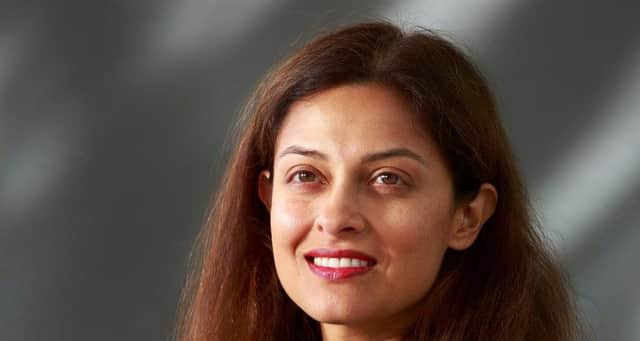Devi Sridhar: 'Boris Johnson’s Covid-19 summer strategy has failed with England facing a groundhog situation'


Professor Devi Sridhar, the chair of global public health at the University of Edinburgh criticised the UK Government’s handling of the Covid-19 pandemic in her most recent opinion piece for the Guardian.
Labelling Boris Johnson and his cabinet as “politicians who would rather follow public opinion than lead”, she said it feels as if the UK Government has “given up without a clear plan or strategy for how to survive in a Covid-19 world”.
Advertisement
Hide AdAdvertisement
Hide AdProf Sridhar added that the Prime Minister’s decision to delay action earlier in the pandemic has led to a “longer, harsher lockdown” with the fact it was based on the hope it would be easier on the economy ‘defying reality’.
She wrote: “There’s been little to no payoff for the sacrifices made in the spring, just more grim news and hopelessness. England now finds itself in a groundhog situation, governed by politicians who would rather follow public opinion than lead.
“All governments face a Covid-19 paradox that is common in public health: prevent illness from occurring and get blamed for enacting measures that saved lives, or wait to enact these measures and then be blamed for avoidable deaths.
"The UK government’s decision to delay a national lockdown in the hope that this would be easier on the economy defies reality: delaying action has led only to a longer, harsher lockdown.
"It can feel as though, confronted with this paradox and exhausted by the months of work that lie ahead, the government is close to giving up without a clear plan or strategy for how to survive in a Covid-19 world.”
Prof Sridhar added it is time to stop discussing “dead cats” such as whether Christmas is cancelled, and “fix our attention on solutions”.
Backing a move to towards “maximum suppression”, the public health expert said it was time for governments to work collaboratively to drive down the virus.
Prof Sridhar said the UK Government had “failed” in forming a “strategy to maintain low numbers and protect against reinfections so over the summer when Covid-19 was at a low prevalence”.
Advertisement
Hide AdAdvertisement
Hide AdShe added: "The best option, for the health of people and that of the economy, is to pursue a “maximum suppression” approach, which means pushing numbers low enough to avoid a repeated cycle of lockdowns.
Crucially, this doesn’t mean an actual lockdown, but a strategy similar to that seen in east Asian and Pacific countries: stronger border measures to prevent reimportation of the virus, good guidance to the public about how to avoid crowded settings and, most importantly, a robust system of testing, tracing and isolating.
“Rather than acting alone, the UK needs to partner with its neighbours in Europe to agree a common regional approach. African countries have worked well regionally, as have those in east Asia and the Pacific.
"A cooperative strategy seems like a distant possibility now, but with a truly hard winter ahead for Europe, it may become more feasible in the spring when countries realise that the only way forward is together, and an elimination strategy (stop community transmission within national borders) is the least-worst path through this crisis for their economies and societies.”
A message from the Editor:
Thank you for reading this article. We're more reliant on your support than ever as the shift in consumer habits brought about by coronavirus impacts our advertisers.
If you haven't already, please consider supporting our trusted, fact-checked journalism by taking out a digital subscription.
Comments
Want to join the conversation? Please or to comment on this article.
